 Double-Match Fundraiser Success Double-Match Fundraiser Success |
 Wild Vs. Domestic Muscovy Ducks Wild Vs. Domestic Muscovy Ducks |
 The Month in Photos! The Month in Photos! |
 West Wing Is Open! West Wing Is Open! |
 Gift Keepsakes for Animal Lovers Gift Keepsakes for Animal Lovers |
 Majestic Gift Shop Majestic Gift Shop |
 Majestic Sponsorships Majestic Sponsorships |

To Make a
Donation, please click here: Donation

Please Help Today!
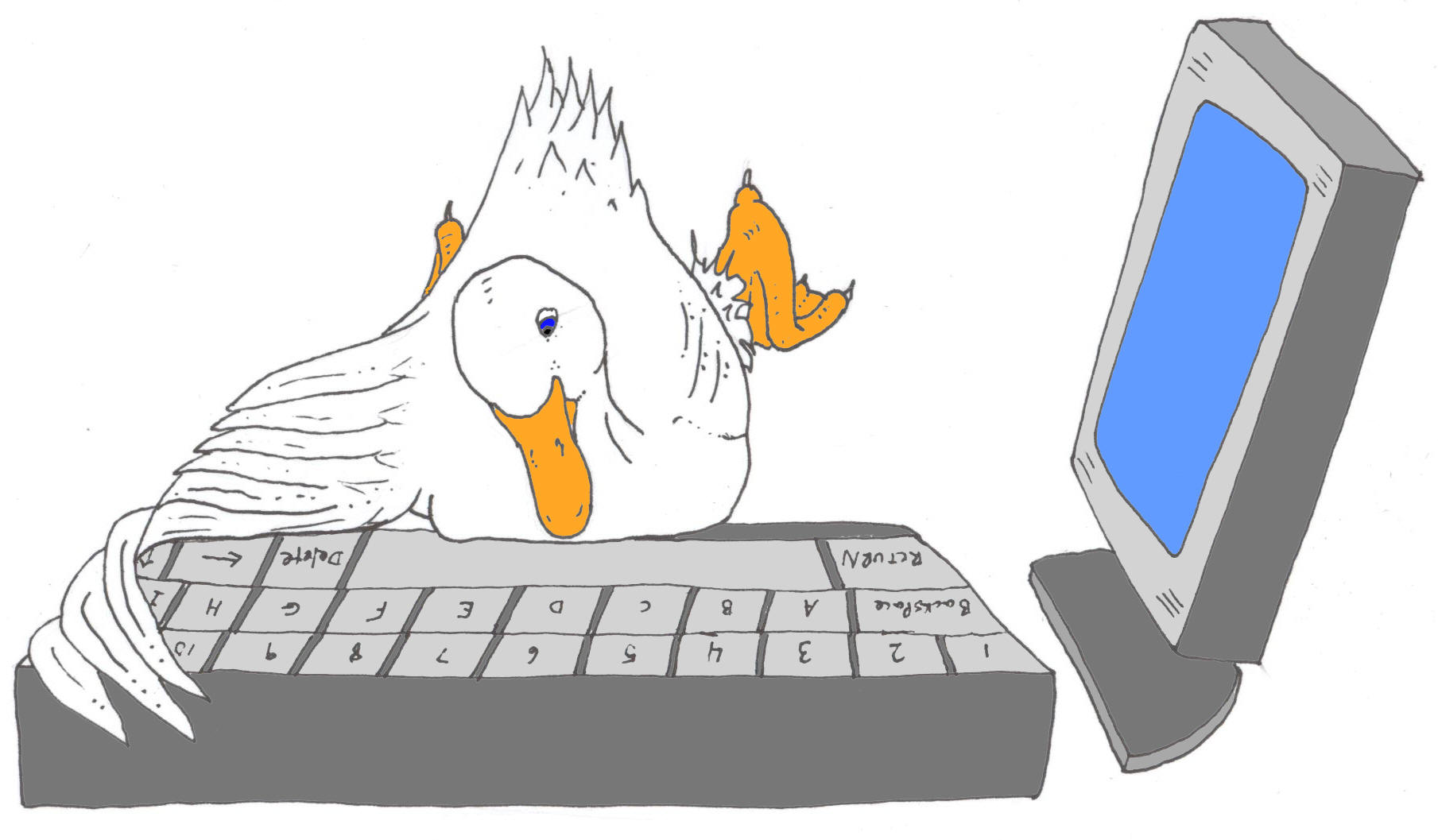
Visit Majestic on Facebook
For lots of
photos and updates as they happen! This is where you can see and
hear all the latest news FIRST!
And visit us on Instagram too: @majestic_waterfowl_sanctuary
The Month in Photos!

Bruno
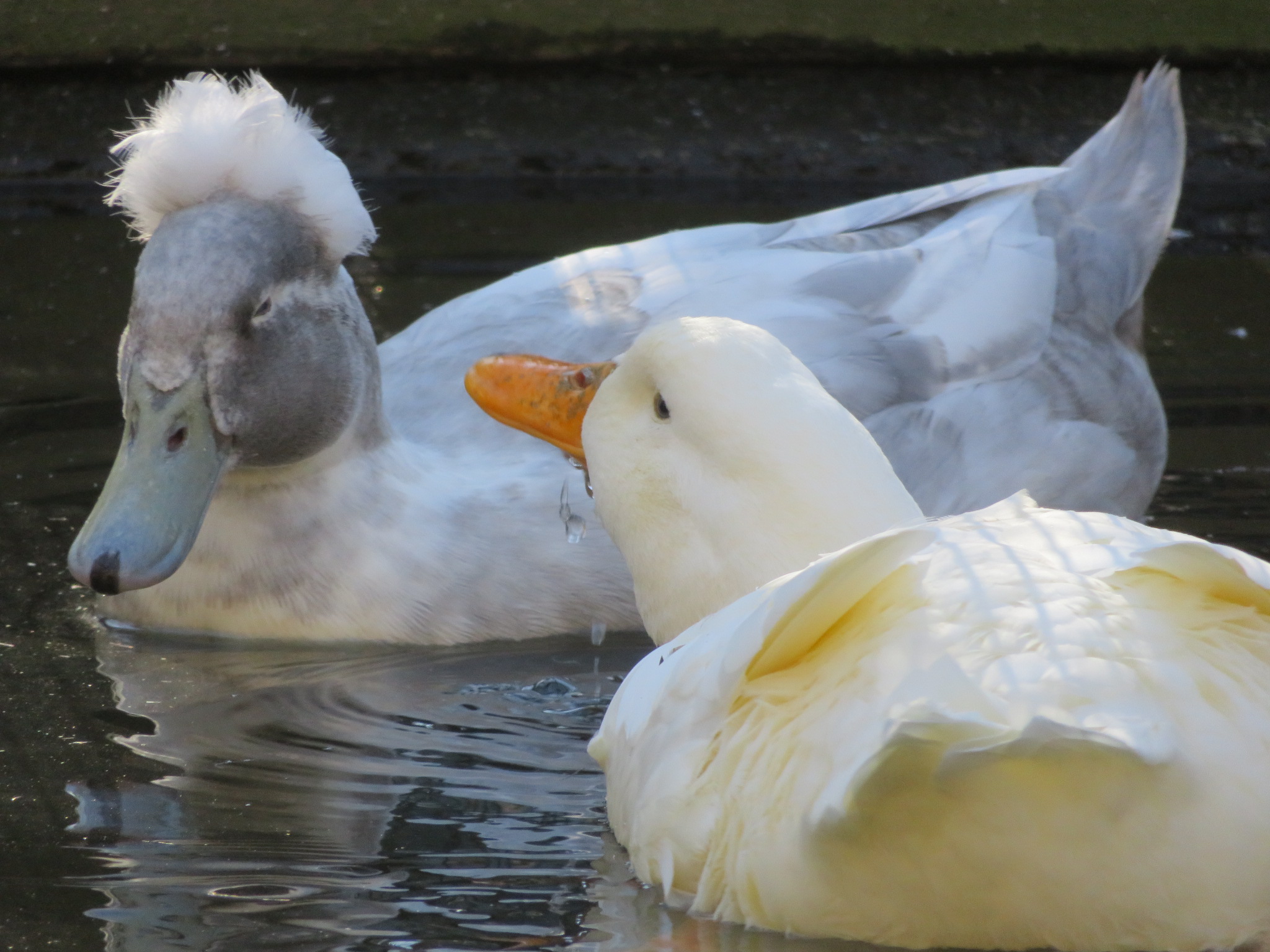
Asaru & Dejah Voo
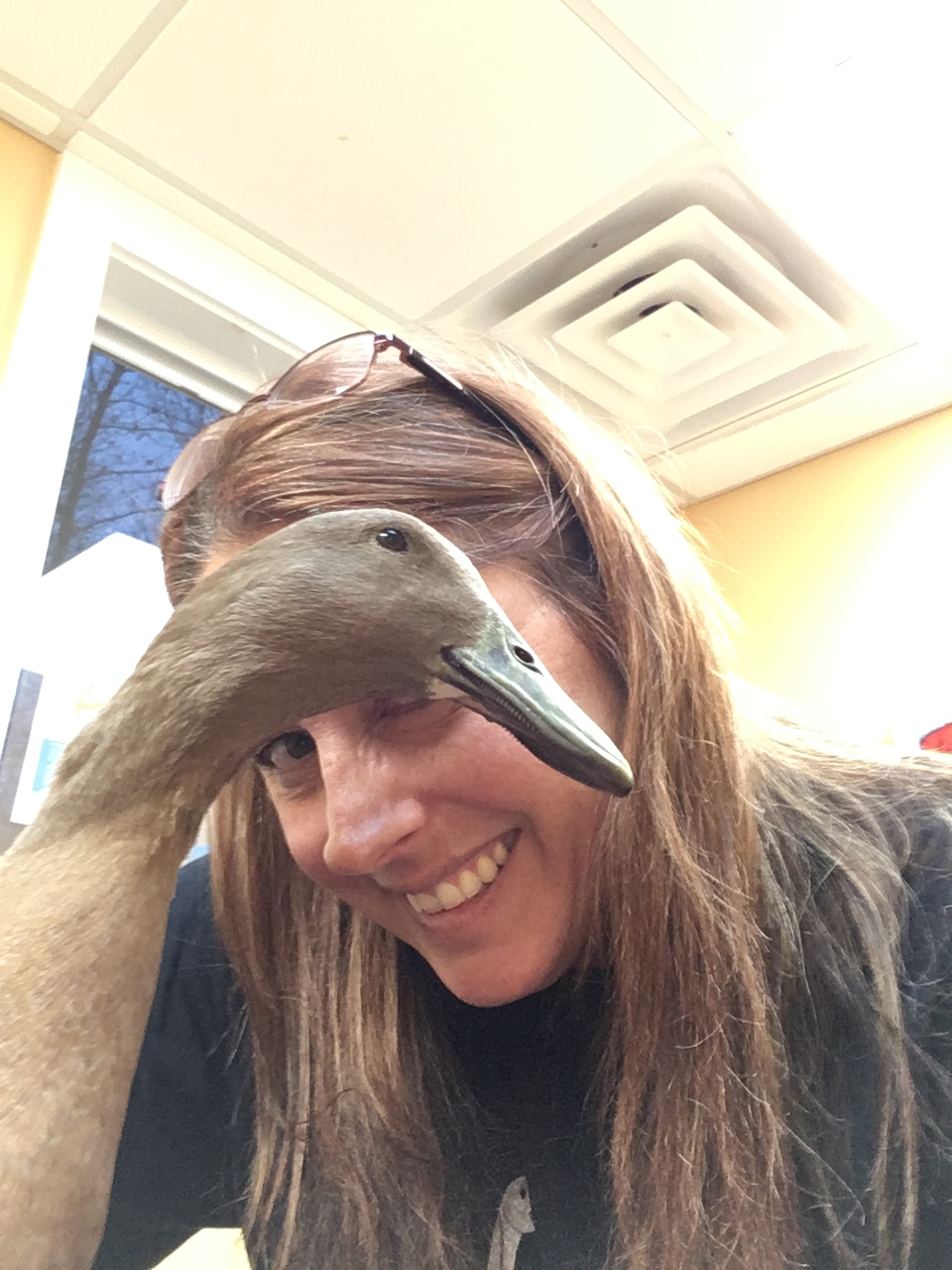
Lil Ms Bee & Momma Duck!
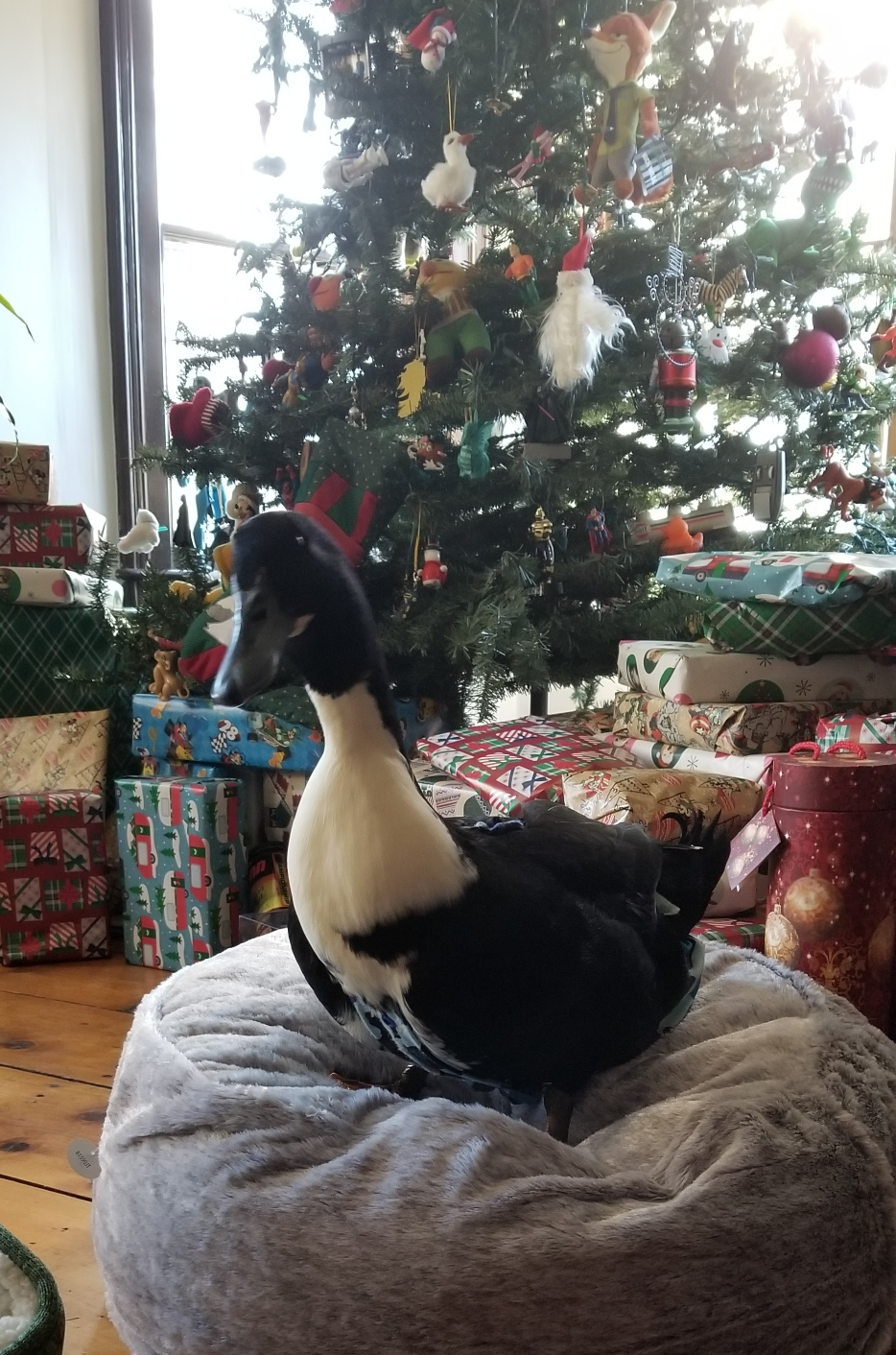
Visiting Marv for the holidays!
Thank you, Lisa & Tony,
for the invitation and the photo!
West Wing is Open!
Our new quarantine pen is looking good and it's functional again!
The perimeter and roof is entirely in place and we have our door. In the spring we will add the dividing fence and second door in the middle, which will divide the pen in half. Our new floor mats, which cushion webbed feet, will be arriving in March.

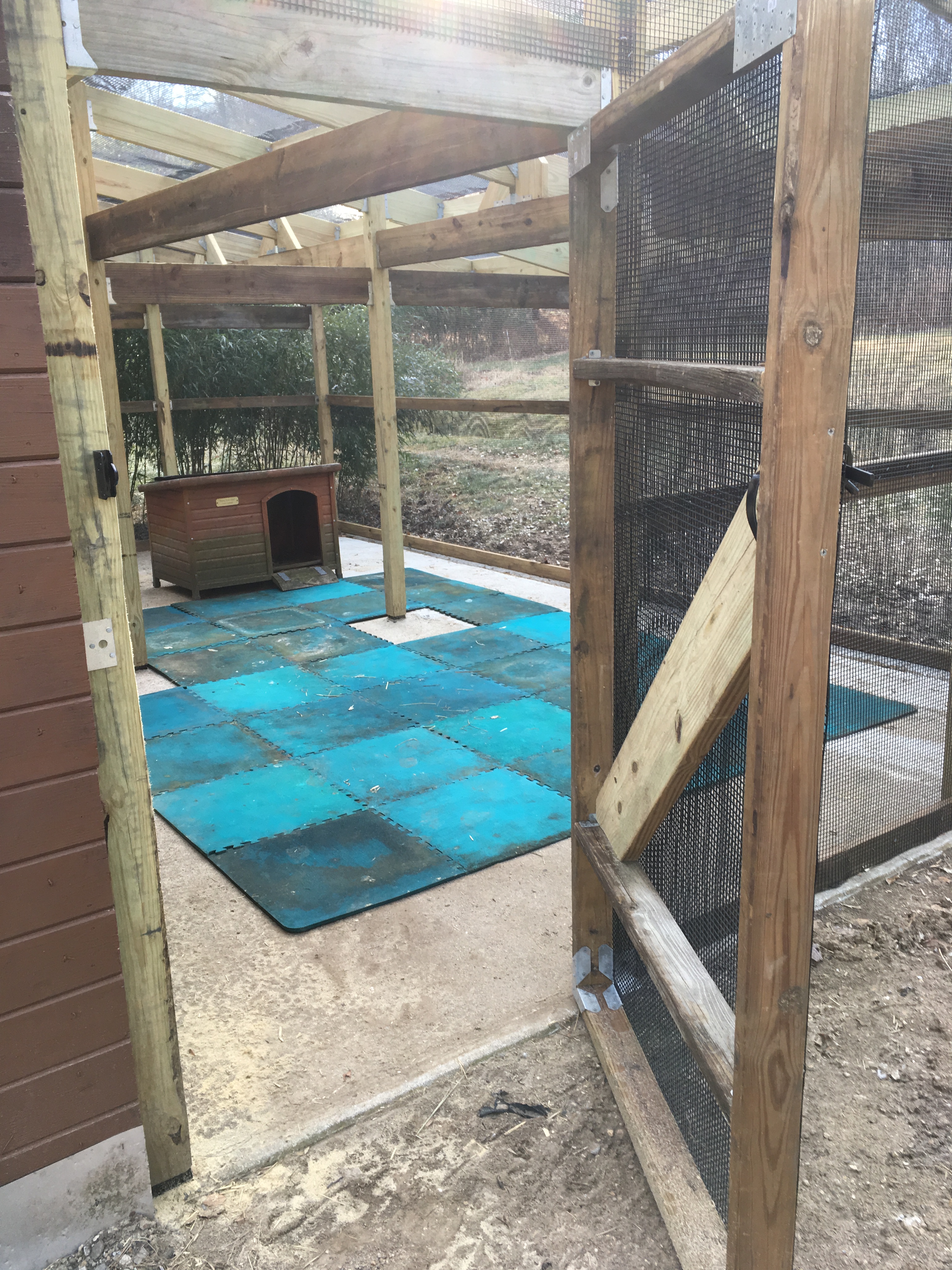
Gift Keepsakes
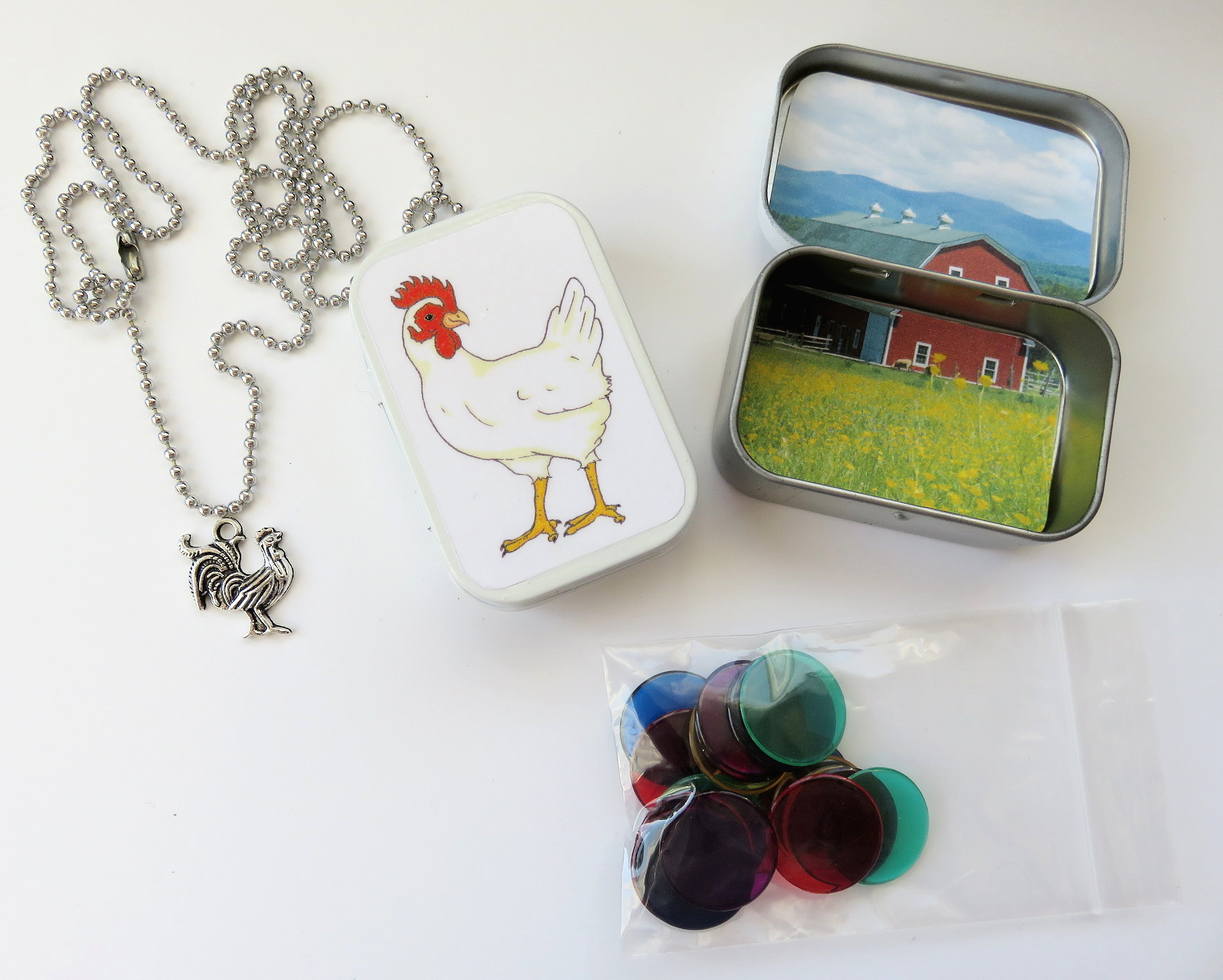
Visit our external website that features photos and descriptions of all of our Pet Keepsakes and Pet Memorial Care Packages.
These gifts are all customizable and are available in various donation levels to suit different budgets.
www.Petkeepsake.weebly.com
Please keep in mind, you still need to visit the Pet Memorial page of our own Majestic website in order to donate for yours.
Majestic
Gift Shop
Visit our Majestic Gift Shop for some fun Majestic items! Proceeds from the
shop benefit our sanctuary!
Lullaby Friends Mug:

Majestic Sponsorships!
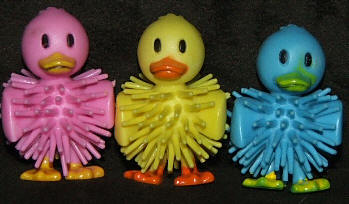
Give the gift that keeps on giving! Please consider sponsoring
our rescued ducks and geese. Visit our Sponsorship Page to learn how!
*Sorry... Continental USA only.
Contact Us
Majestic Waterfowl
Sanctuary
17 Barker Road
Lebanon, CT 06249
directorATmajesticwaterfowl.org
Our Newsletter
The Majestic Monthly is published 12 times per year.
Previous issues are available in our
Archives.
|
Double-Matched Fundraiser A Success!
YAY-RAH-RAH!
Our Double-Matched Fundraiser was a ENORMOUS success!
After meeting our full $5000 goal only 24 hours into the fundraiser, our MOST AMAZING and GENEROUS sponsor called and announced that they would increase the double-match up to $6000! WOO-HOOOOO!
We ended up raising a grand total of: $6430.59, which earned us the full $12,000 match!!!
THANK YOU to every single one of our donors and thank you to Lisa & Tony Phalstaf for dropping by with wine and prizes! How many of you out there witnessed that HILARIOUS wind-up duck race featuring The Cayuga Quacker and The Khaki Crusher?!
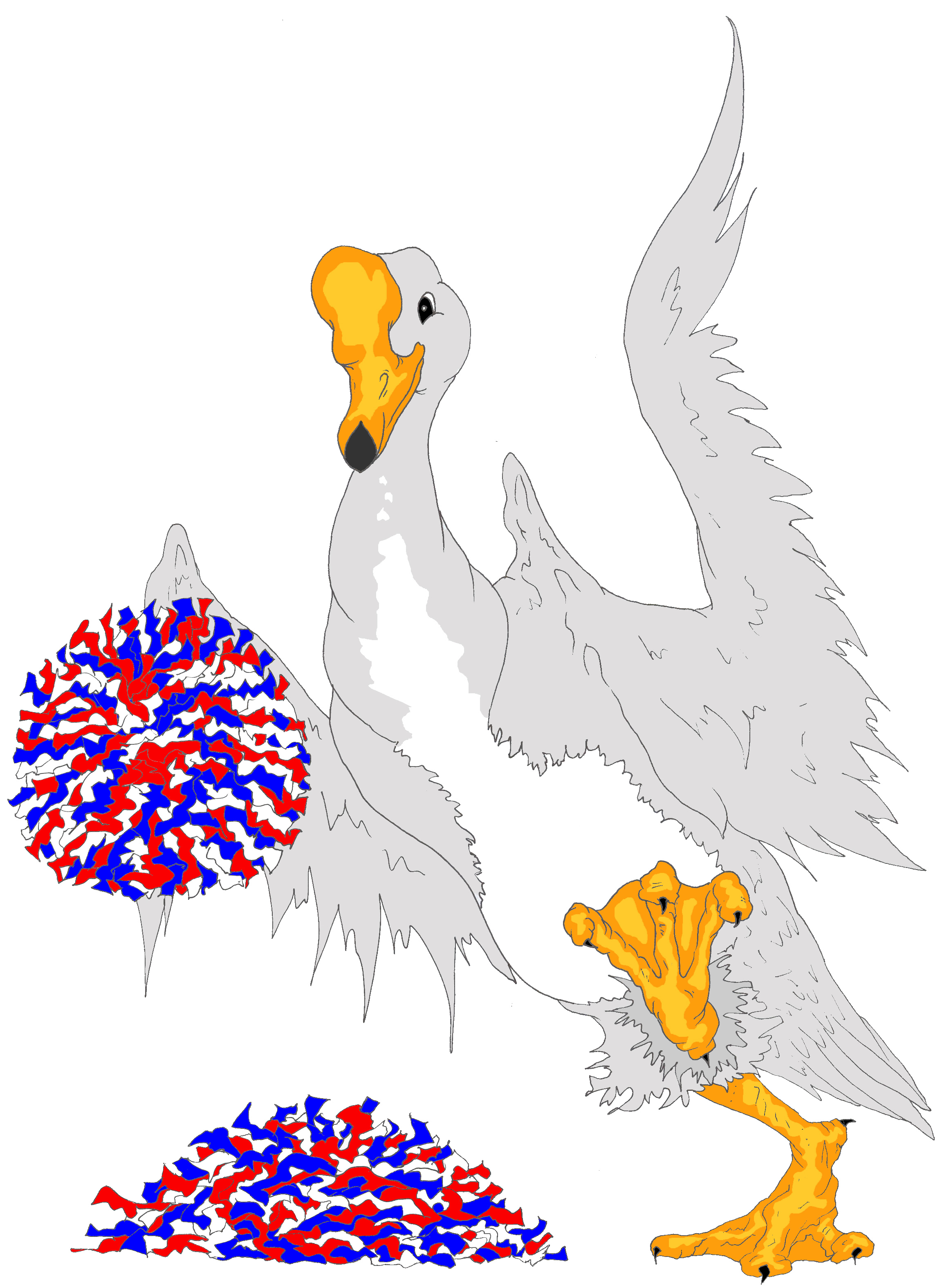
We hope you enjoyed all of the fun duck and goose art and animation blasted through Facebook & Instagram!
Wild Muscovy Ducks vs. Domestic Muscovy Ducks
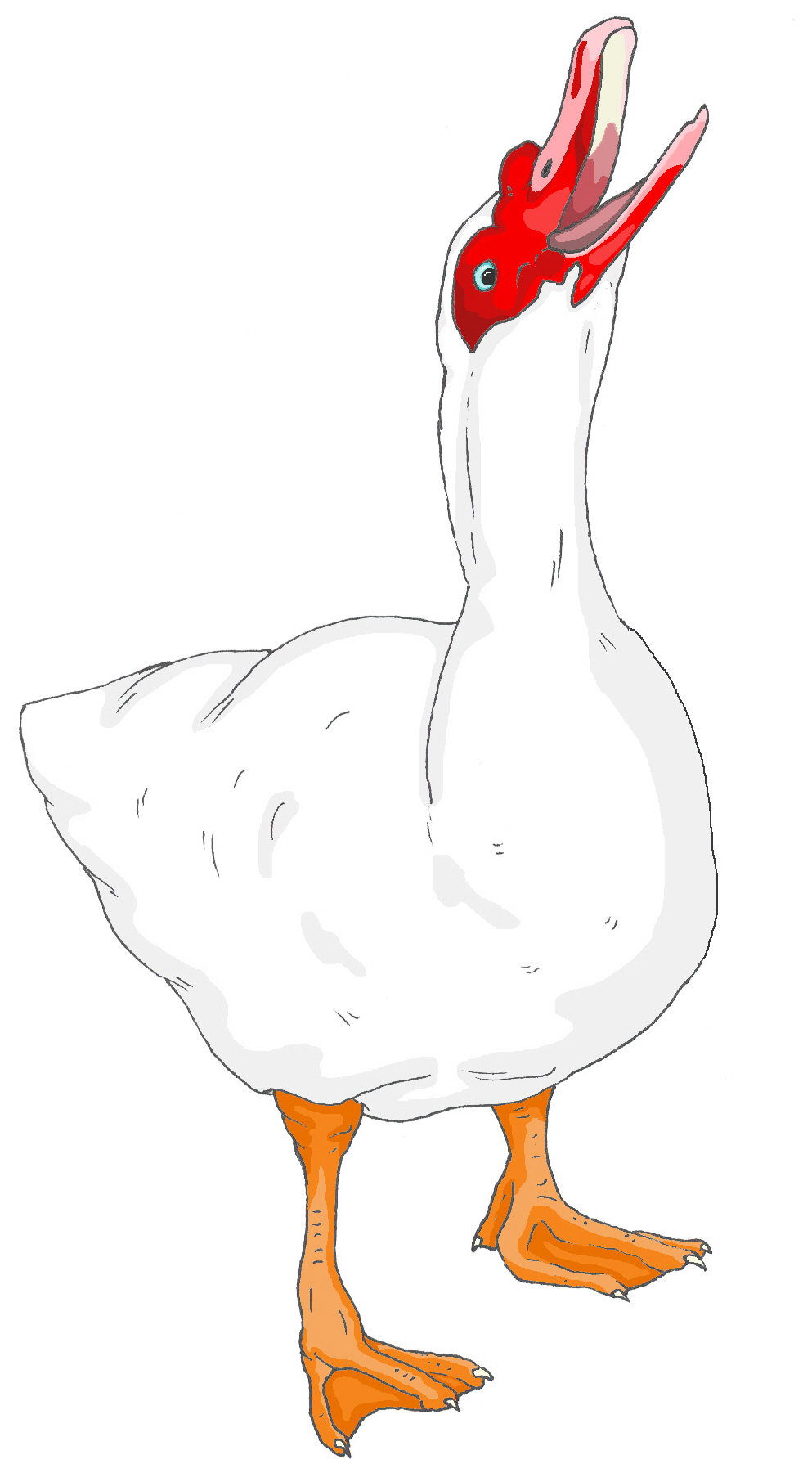 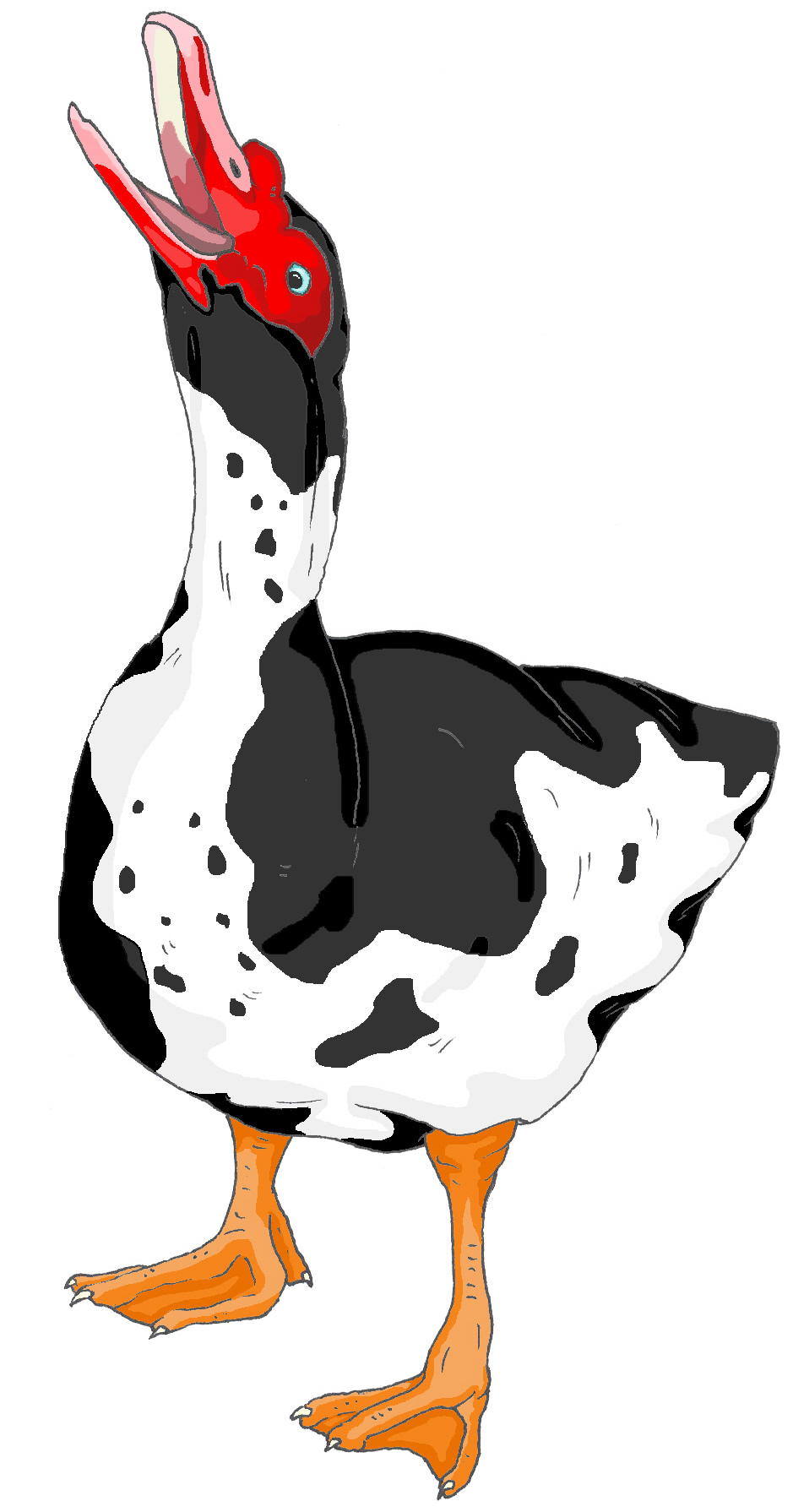
The question as to whether or not Muscovy ducks belong in the wild comes through to us often and here is the official answer based on federal regulations:
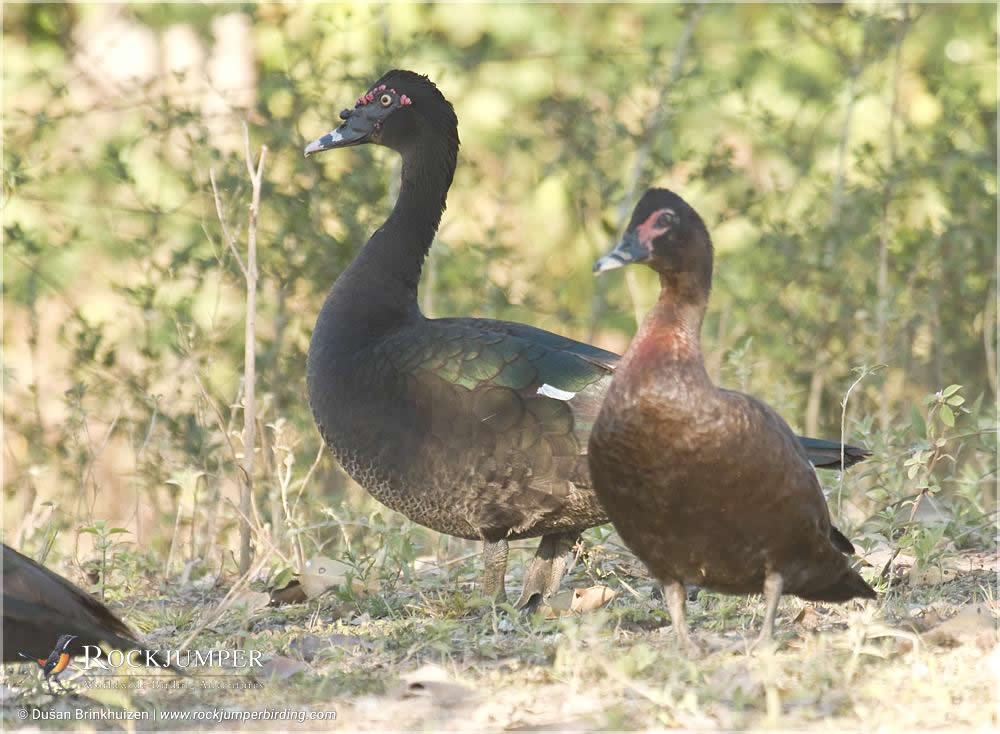 Wild Muscovy Ducks Wild Muscovy Ducks
Photo Credit: Dusan M. Brinkhuizen www.rockjumperbirding.com
Wild Muscovy ducks (cairina moschata) are native to South & Central America and usually only migrate up into southern Texas. Muscovy ducks in any other state are not wild, but feral; that is, captively bred Muscovy ducks (cairina moschata domestica) who have been introduced into the wild by humans.
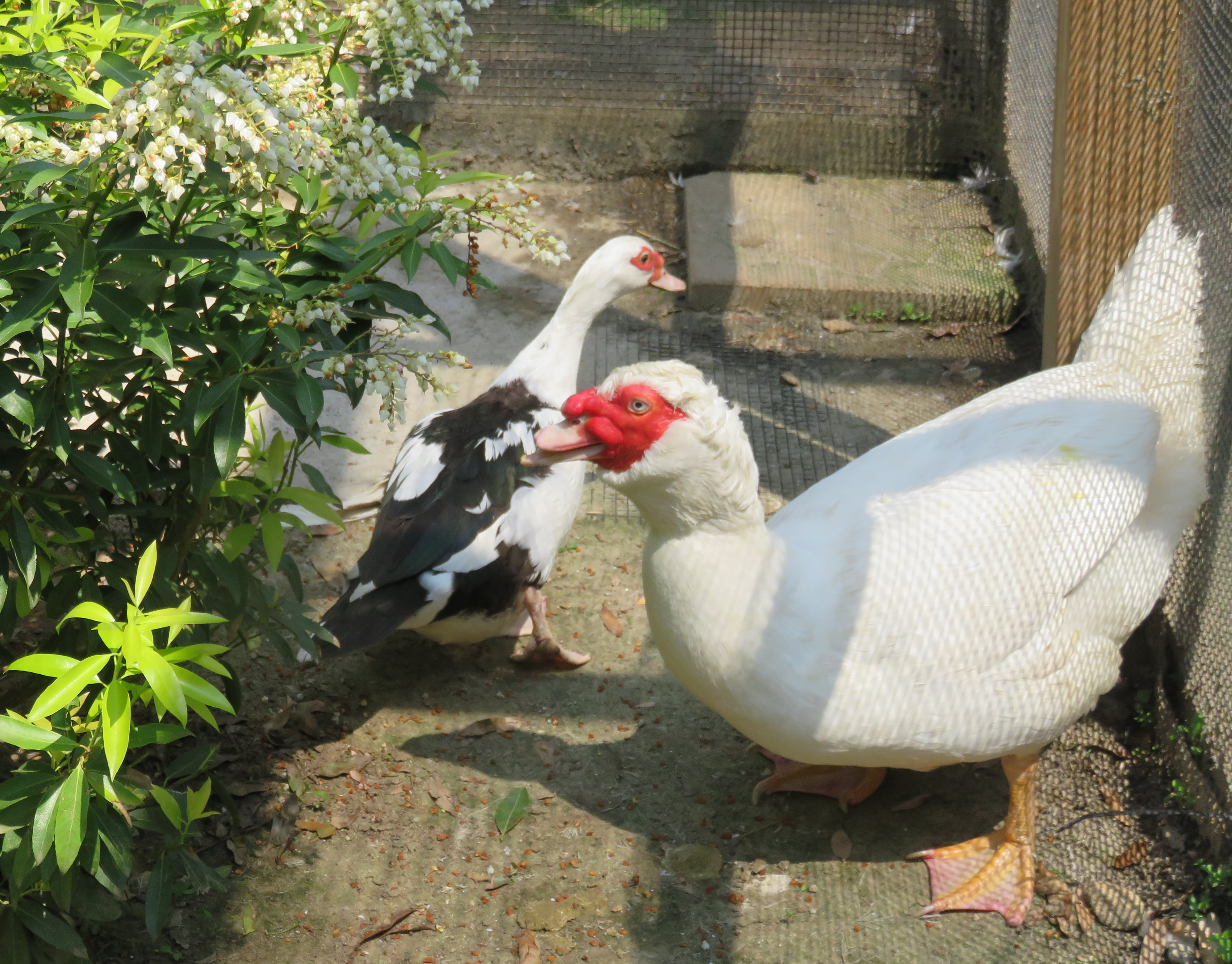
Billy-Cha & Daisy-Seite "17" are Domestic Muscovy Ducks
Breeders have been hatching out captively bred Muscovy ducks for quite some time, but these offspring differ from their wild counterparts in a few noticeable ways:
1) Domestic Muscovy ducks have far more red in their overly bulbous faces than their Wild Muscovy counterparts who have less flashy, mostly black, facial bumps.
2) Domestic Muscovy ducks are bred in a variety of color patterns while wild Muscovy ducks tend to be dark-feathered with white wing patches.
3) Domestic Muscovy ducks are much heavier-bodied than their wild counterparts, especially males. Like most domestic ducks (with the exception of the Bantam or Call breeds), they've been bred this way to prevent their flying off. While most domestic males weigh 10-15 pounds, many (like our own Billy-Cha) weigh 17-18 pounds and are completely incapable of flight. Adult domestic females often weigh between 6-8 pounds and have limited flying capabilities. On the other hand, fully-flighted wild Muscovy ducks have smaller bodies in comparision to their wing size. Wild males often weigh in at the lower end of 5-9 pounds, while females weigh between 2-4 pounds. That's quite a difference! And it certainly explains why wild Muscovy ducks can fly while domestic Muscovy ducks tend to face drastic limitations.
Although younger and smaller domestic Muscovy males and females can often get off the ground, they simply can't sustain the long-term flight capability necessary for migration. This becomes even more pronounced as they mature to full size. They are more readily known as "lazy flyers" who only move short distances until they grow too large to move on any further.
This means, if you release, or allow a domestic Muscovy duck to escape, they aren't likely to go very far. Like most domestic ducks, they don't have the instincts or capabilities to survive on their own and most succumb to predation, starvation, or fall victim to the elements rather quickly--especially up north.
In northern climates, like those here in Connecticut, abandoned and unprotected Muscovy ducks commonly succumb to frostbite. Feet, toes, bills and fleshy facial caruncles are extremely susceptible. They are amoung the most vulnerable waterfowl when it comes to the cold weather, especially males. Dumping them into the wild, or not penning them properly and allowing for their escape, is commonly equated with an act of animal cruelty, not to mention--it's ILLEGAL!
In southern climates, abandoned/escaped Muscovy ducks tend to fair somewhat better; however, this can lead to a whole new set of problems. In some areas (like Ocala Florida) they actually become invasive, disturbing the nesting grounds and populations of many native species of birds. This town, and others like them, have learned the hard way just how damaging and expensive it can be to wait for feral Muscovy populations to explode before intervening.
When weighing the costs of handling medium-to-large populations of feral Muscovy ducks, some towns & cities will attempt to pass covert plans of mass destruction in lieu of relocating these beloved animals. They often discover rather quickly that their cruel intentions will not go unchallenged though (thank goodness!). Costs increase when concerned citizens get involved, calling for more public town meetings, the participation of animal rights groups, national media, and appeals to state and government representatives to get involved. It's around this time that city officials really wished they had properly and humanely handled the situation of one or two dumped pets in their public parks and waterways A LOT SOONER.
In the USA, The Migratory Bird Treaty Act prohibits the release (accidental or purposeful) of any domestic Muscovy ducks (or domestic Muscovy hybrids) into the wild, which means onto any property that does not legally belong to their owners. To ensure this does not happen, domestic Muscovy ducks must consistently remain within pens from which they cannot escape from your property at all times. Wing clipping is not enough to prevent their wandering off (espeically during annual periods of new feather growth before feathers can be pruned); they must be kept in proper pens with full aviary protection in order to remain secure in their home.
Moose and Mercury are two of our Muscovy hybrids who were illegally dumped onto ponds. You can adopt either of these two guys from us if you have a predator-proof pen with full aviary protection. And why wouldn't you? They're absolutley gorgeous!

Moose is a Muscovy/Rouen mix
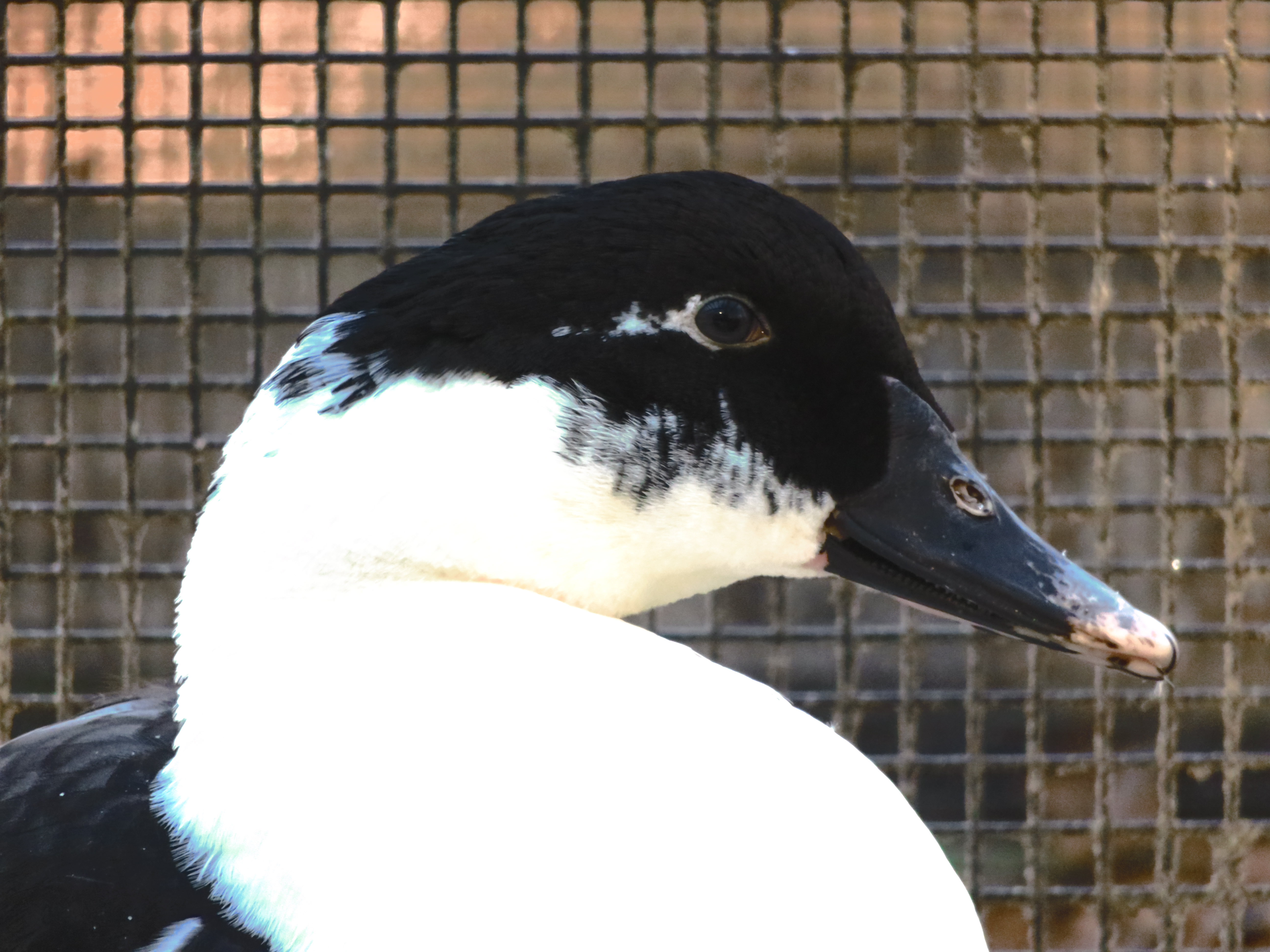
Mercury is a Muscovy/Pekin mix
|

